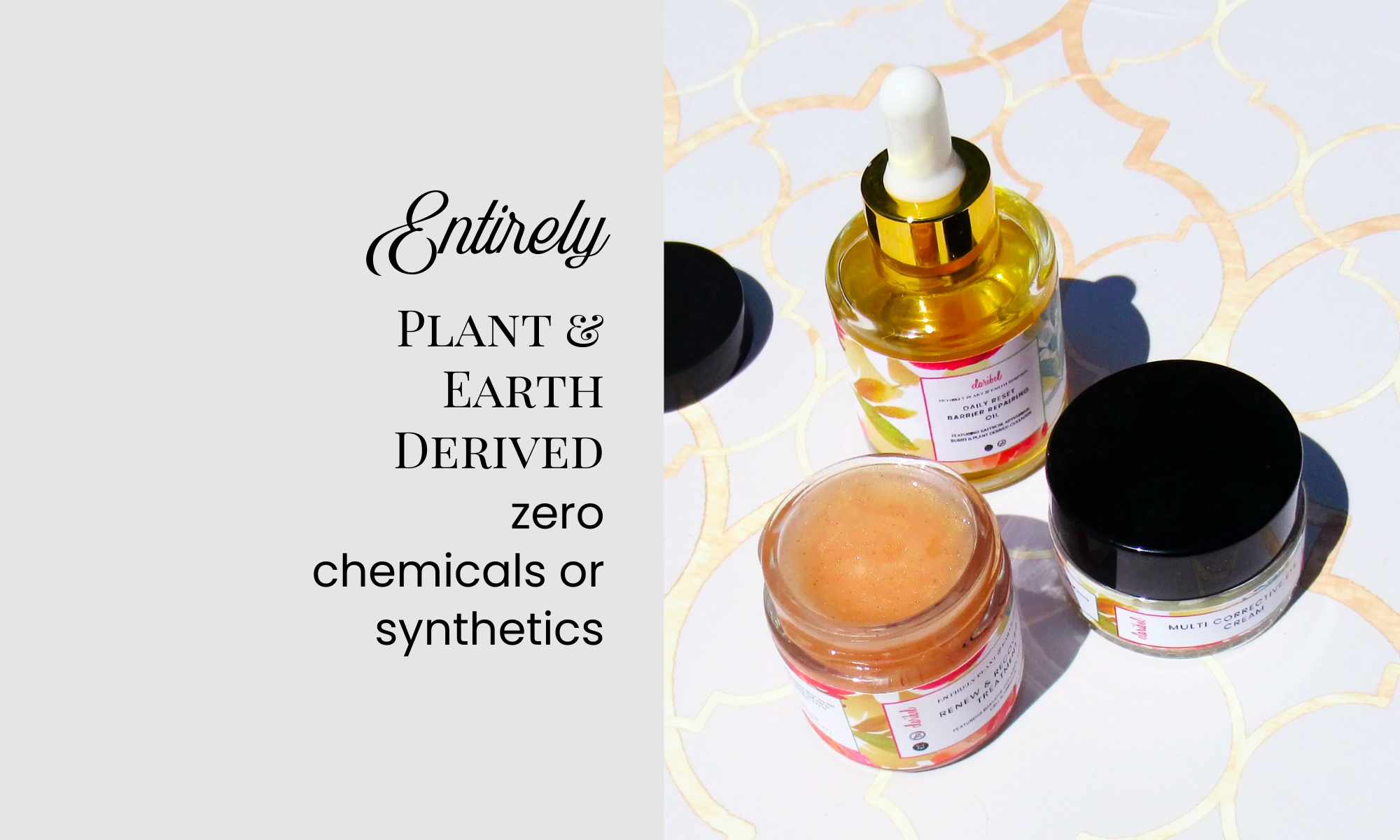


Made to Order Clean List, Vegan & Cruelty Free Skincare
Welcome to Claribelskincare.com, your best choice for 100% plant and earth derived, clean list and cruelty free products.
Our range is formulated to restore vibrant, healthy, radiant skin and hair naturally. We are FDA certified and paraben free, sulfate free, petroleum free, mineral oil free, dye free, chemical free, synthetic fragrance free, and water free / highly concentrated.
Each and every ingredient serves a value added purpose to benefit your skin, hair and body. We offer free shipping in the US for all orders, as well as free samples, and free returns.
Questions, concerns, or suggestions? Email us at support@claribelskincare.com or text us at 770-568-8921.
Cleansers
-
Brightening Cleanser
4.91 / 5.0
(22) 22 total reviews
Regular price From $ 22Regular priceUnit price / per$ 0Sale price From $ 22 -
Clarifying Calamine Clay Cleansing Bar for Face & Body
Regular price $ 20Regular priceUnit price / per$ 0Sale price $ 20 -
Customizable Cleansing Bar ৹ Sulfate and Paraben Free
5.0 / 5.0
(12) 12 total reviews
Regular price $ 20Regular priceUnit price / per$ 0Sale price $ 20 -
Moon Glow Cleansing Cream
4.98 / 5.0
(43) 43 total reviews
Regular price From $ 21Regular priceUnit price / per$ 0Sale price From $ 21
Exfoliators
-
Papaya Enzyme Exfoliation Mask
5.0 / 5.0
(12) 12 total reviews
Regular price From $ 21Regular priceUnit price / per$ 0Sale price From $ 21 -
Super Smooth Berry Lip Polish
4.96 / 5.0
(24) 24 total reviews
Regular price From $ 19Regular priceUnit price / per$ 0Sale price From $ 19 -
AHA Body Scrub ৹ Choose Your Natural Scent
5.0 / 5.0
(15) 15 total reviews
Regular price From $ 23Regular priceUnit price / per$ 0Sale price From $ 23 -
Ginger, Quince & Clove Ultra Gentle Scrub
5.0 / 5.0
(9) 9 total reviews
Regular price From $ 21Regular priceUnit price / per$ 0Sale price From $ 21
Eyelash & Hair Care
-
Better Growth Eyelash Tint & Primer
5.0 / 5.0
(7) 7 total reviews
Regular price $ 21Regular priceUnit price / per$ 0Sale price $ 21 -
Eyelash and Eyebrow Growth Serum
4.98 / 5.0
(48) 48 total reviews
Regular price $ 20Regular priceUnit price / per$ 0Sale price $ 20 -
Hair and Scalp Mask ৹ Better Hair Growth, Healthier Scalp
5.0 / 5.0
(18) 18 total reviews
Regular price From $ 22Regular priceUnit price / per$ 0Sale price From $ 22 -
Healthy Scalp & Better Hair Growth Mist
5.0 / 5.0
(19) 19 total reviews
Regular price $ 21Regular priceUnit price / per$ 0Sale price $ 21
Eye & Lip Care
-
Coffee & Cocoa Butter Eye Balm
5.0 / 5.0
(7) 7 total reviews
Regular price $ 22Regular priceUnit price / per$ 0Sale price $ 22 -
Multi Corrective Eye Cream
5.0 / 5.0
(35) 35 total reviews
Regular price $ 22Regular priceUnit price / per$ 0Sale price $ 22 -
Renew and Recover Eye Treatment
5.0 / 5.0
(6) 6 total reviews
Regular price $ 22Regular priceUnit price / per$ 0Sale price $ 22 -
Super Smooth Berry Lip Polish
4.96 / 5.0
(24) 24 total reviews
Regular price From $ 19Regular priceUnit price / per$ 0Sale price From $ 19
Masks
-
Papaya Enzyme Exfoliation Mask
Regular price From $ 21Regular priceUnit price / per$ 0Sale price From $ 21 -
Hyaluronic & Vitamin C Skin Plumping Mask
Regular price From $ 21Regular priceUnit price / per$ 0Sale price From $ 21 -
Pineapple Enzyme Refining Mask
Regular price From $ 21Regular priceUnit price / per$ 0Sale price From $ 21 -
Glacial & Volcanic Clay Pore Minimizing Mask
Regular price From $ 21Regular priceUnit price / per$ 0Sale price From $ 21
Moisturizers
-
Anti Aging Day Cream & Mineral Sunscreen SPF 25
5.0 / 5.0
(1) 1 total reviews
Regular price From $ 23Regular priceUnit price / per$ 0Sale price From $ 23 -
Intense Hydration Cream
4.96 / 5.0
(57) 57 total reviews
Regular price From $ 23Regular priceUnit price / per$ 0Sale price From $ 23 -
Nordic Flower Healing Cream
5.0 / 5.0
(7) 7 total reviews
Regular price From $ 23Regular priceUnit price / per$ 0Sale price From $ 23 -
Ultra Repairing Night Cream
5.0 / 5.0
(22) 22 total reviews
Regular price From $ 24Regular priceUnit price / per$ 0Sale price From $ 24
Serums
-
Firming & Lifting Anti Aging Serum
Regular price From $ 25Regular priceUnit price / per$ 0Sale price From $ 25 -
Hyaluronic & Multi Peptide Serum
Regular price From $ 24Regular priceUnit price / per$ 0Sale price From $ 24 -
Nighttime Recovery Serum
Regular price From $ 24Regular priceUnit price / per$ 0Sale price From $ 24 -
Acne Spot Treatment
Regular price $ 21Regular priceUnit price / per$ 0Sale price $ 21
Toners ৹ Mists
-
Firming and Anti Aging Toning Mist
Regular price $ 23Regular priceUnit price / per$ 0Sale price $ 23 -
Healthy Scalp & Better Hair Growth Mist
Regular price $ 21Regular priceUnit price / per$ 0Sale price $ 21 -
Glow and Brighten Treatment Mist
Regular price $ 21Regular priceUnit price / per$ 0Sale price $ 21 -
Calming Relief Treatment Mist
Regular price $ 21Regular priceUnit price / per$ 0Sale price $ 21
Blog posts
View all-

Fine Lines Around the Lips: Causes, Treatments ...
Fine Lines Around the Lips: Causes, Treatments and Prevention Fine lines around the lips are a common concern for many individuals as they age. These subtle yet noticeable wrinkles can...
Fine Lines Around the Lips: Causes, Treatments ...
Fine Lines Around the Lips: Causes, Treatments and Prevention Fine lines around the lips are a common concern for many individuals as they age. These subtle yet noticeable wrinkles can...
-

Natural Night Face Cream ৹ 10 Reasons Why You N...
Find out here how a natural night cream is your best defense to achieving your skin care goals. Night creams are more than just a marketing ploy or added step...
Natural Night Face Cream ৹ 10 Reasons Why You N...
Find out here how a natural night cream is your best defense to achieving your skin care goals. Night creams are more than just a marketing ploy or added step...
-

Vegan Skincare for Sensitive Skin: Tips and Myths
Vegan Skincare for Sensitive Skin: Myths, Tips and Ingredients to Avoid Sensitive skin requires special care and attention due to its tendency to react to various environmental factors and skincare...
Vegan Skincare for Sensitive Skin: Tips and Myths
Vegan Skincare for Sensitive Skin: Myths, Tips and Ingredients to Avoid Sensitive skin requires special care and attention due to its tendency to react to various environmental factors and skincare...
Subscribe & Save $20 Off Your Next Order
Be the first to know about new collections and exclusive offers.
























































